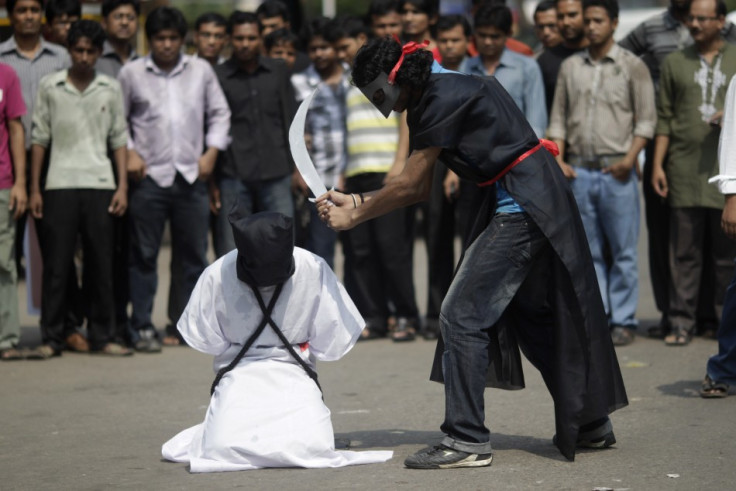Saudi Woman's Beheading for Practising 'Sorcery' Condemned by Amnesty

A Saudi woman was beheaded on Monday after being convicted of practicing "witchcraft and sorcery", prompting outrage from human rights campaigners.
Amina bint Abdulhalim Nassar was killed in the 79th execution to take place in Saudi Arabia this year. There were also 345 reported executions from 2007 through 2010, all carried out by public beheading.
Details of the victim's crime are unclear, but the London-based al-Hayat daily quoted the chief of religious police as stating that she had tricked people into thinking she could treat illnesses, charging them around £500 a session.
Murder, rape, apostasy, drug dealing and armed robbery all carry the death penalty under Saudi Arabia's interpretation of sharia law. Executions can take place by sword, stoning or firing squad, followed by crucifixion.
Amnesty International condemned the execution as "deeply shocking".
"The charges of 'withcraft and sorcery' are not defined as crimes in Saudi Arabia and to use them to subject someone to the cruel and extreme penalty of execution is truly appalling," said Amnesty's interim Middle East and North Africa director, Philip Luther.
"While we don't know the details of the acts which the authorities accused Amina of commmitting, the charge of sorcery has often been used in Saudi Arabia to punish people, generally after unfair trials, for exercising their right to freedom of speech or religion."
The number of executions in Saudi Arabia has almost tripled this year, with 27 beheaded in 2010. This is the second execution of its kind in recent months. In September a Sudanese was beheaded in Medina after being convicted on sorcery charges,
"The huge rise in the number of executions in Saudi Arabia is deeply disturbing," Luther added.
"We regularly call on the Saudi Arabian authorities to impose a moratorium with a view to abolishing the death penalty. Where the death penalty is used, under international law it should only be applied to the most serious crimes."
Saudi Arabia was one of a minority of states voting against a U.N. General Assembly resolution calling for a worldwide moratorium on executions in December 2010.
© Copyright IBTimes 2025. All rights reserved.





















